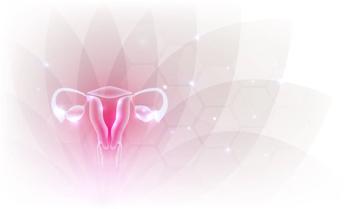
A cost-effectiveness model found first-line IV iron dextran offers higher value than oral iron for IDA in women with heavy menstrual bleeding.

Morgan Ebert is managing editor of Contemporary OB/GYN® and Contemporary Pediatrics®. She joined the MJH Life Sciences team in December 2019. She graduated from Youngstown State University in 2019 with a bachelor's degree in journalism and a minor in political science. Prior to graduating, Morgan worked as the editor-in-chief of her college newspaper. She went on to work as an assignment editor at a broadcast news station in Youngstown, Ohio, before joining the Contemporary brands. You can reach her at mebert@mjhlifesciences.com.

A cost-effectiveness model found first-line IV iron dextran offers higher value than oral iron for IDA in women with heavy menstrual bleeding.

Maternal influenza and Tdap vaccination during pregnancy was associated with fewer influenza- and pertussis-related hospital and ED visits in infants younger than 6 months.

A systematic review found AI-assisted ultrasound models improved diagnostic accuracy for endometriosis, with deep learning outperforming traditional methods.

New research links abnormal collagen remodeling at cesarean scars—not placental invasion—to placenta accreta spectrum risk.

Take a quick look at everything you may have missed during the fourth quarter of 2025, including the latest FDA approvals and top stories.

Prenatal exposure to hot, humid conditions was associated with significantly reduced child growth, with effects far greater than heat alone.

CBD and THC reduced ovarian cancer cell growth and migration in vitro, with strongest effects seen when the compounds were combined in equal ratios.

Higher intake of ultra-processed foods before diagnosis was associated with increased breast cancer–specific and all-cause mortality in Black women.

GSK, Spero Therapeutics, resubmitted an NDA for tebipenem HBr, an oral carbapenem antibiotic, for treating complicated UTIs, supported by phase 3 trial data.

ASCO’s new guideline outlines evidence-based strategies for diagnosing and treating leukemia and lymphoma during pregnancy.

The FDA approved flibanserin for HSDD in women younger than 65 years, expanding access to the first nonhormonal therapy for low sexual desire.

The FDA has approved Nuzolvence as a new single-dose oral option for uncomplicated urogenital gonorrhea in adults and children 12 years and older who weigh at least 77 lb.
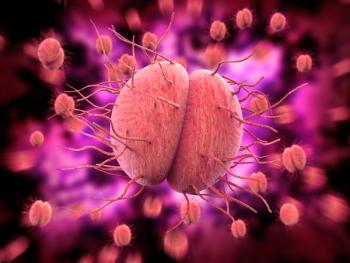
Phase 3 results show oral zoliflodacin was non-inferior to ceftriaxone and azithromycin for uncomplicated urogenital gonorrhea.

This approval of gepotidacin is the first in a new antibiotic class for the treatment of gonorrhoea approved in over 3 decades.
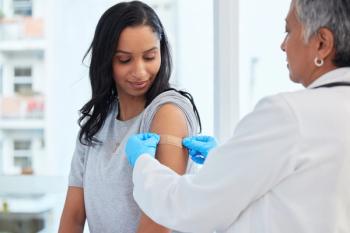
A phase 2 trial found the maternal GBS-AlpN vaccine to be immunogenic and have an acceptable safety profile in pregnant women and their infants.

DARE to PLAY sildenafil cream is now available for prescribing in select states as a non-hormonal topical option to improve genital blood flow and arousal.
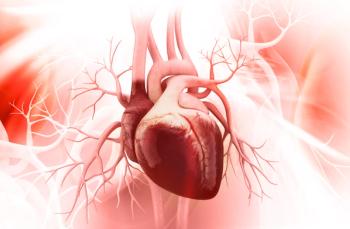
Large US cohort finds women with uterine fibroids had more than 80% higher 10-year cardiovascular disease risk than women without fibroids.

ACS updates cervical cancer screening guidance, adding HPV self-collection and clarifying criteria for safely discontinuing screening at older ages.
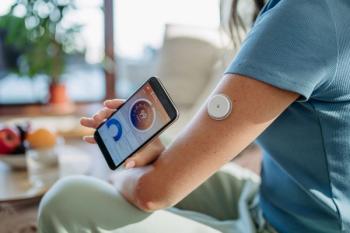
A randomized trial found that real-time continuous glucose monitoring reduced large-for-gestational-age births compared with self-monitoring in gestational diabetes.

Higher maternal vitamin D levels in pregnancy were associated with reduced odds of early childhood caries and lower DMFT scores in offspring.
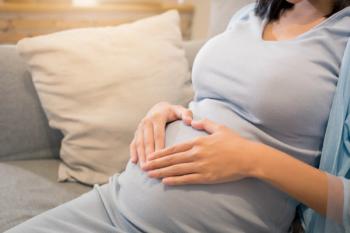
Discontinuing GLP-1 receptor agonists before or early in pregnancy was associated with greater gestational weight gain and higher risks of diabetes, hypertension, and preterm birth.

Take a quick look at everything you may have missed in November, including the latest FDA updates, top stories, and expert recommendations.

Holiday meals carry extra food safety risks for pregnant patients. Here’s what ob-gyns should remind them before Thanksgiving gatherings.

Planned community births in Oregon showed increased risks only when hospital transfer occurred, underscoring the need for clear counseling and transfer systems.

A US study of women over 60 found that frequent sex toy use during masturbation was strongly associated with higher orgasm frequency.

Two-thirds of pregnancies fall outside recommended gestational weight gain ranges, increasing risks for adverse maternal and neonatal outcomes.
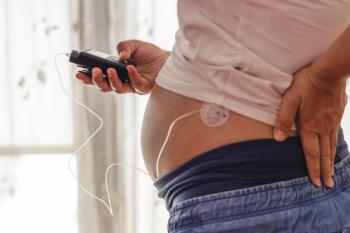
Closed-loop insulin delivery improved time in pregnancy-specific glucose range in a randomized trial of individuals with type 1 diabetes.

Study finds trouble sleeping, sleep apnea, and short or long sleep duration are linked to higher odds of hypertension in postmenopausal women.

Survey reveals limited allergy referrals in pregnancy due to lack of guidance and long wait times, highlighting need for better education.

Higher waist-to-hip ratio was linked to poorer cognitive performance in early postmenopause, though it did not alter hormone therapy effects.
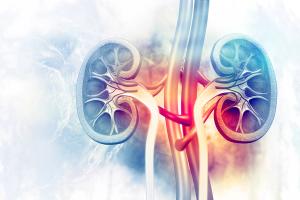
Published: June 13th 2024 | Updated:

Published: September 10th 2024 | Updated:

Published: September 19th 2025 | Updated:

Published: October 25th 2025 | Updated:

Published: December 10th 2024 | Updated:

Published: October 21st 2025 | Updated: